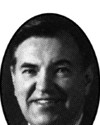I am ready to deliver my decision on two questions of privilege which were brought up on Thursday. The reason I am giving my decision now before the start of Question Period is that it could impact on Question Period itself.
I will add whatever time it takes for me to read my decision to the end of Question Period today.
As I said, I am now ready to render my decision concerning the question of privilege raised by the hon. Minister of Foreign Affairs on Thursday, April 28 following Question Period. I will also respond to the point of order raised by the hon. member for Roberval at the same time.
The minister has indicated that his privileges were breached when, in the preamble to certain questions, statements were made that he was unwilling to answer some questions that had been addressed to him. Such comments could give a poor impression of his work as a minister and a member.
We must always bear in mind the basic principles that govern Question Period. These principles have been eloquently summarized in the past by Speakers Jerome and Bosley, and the highlights of their statements can be found in citations 409 and 410 of the 6th edition of Beauchesne.
One of these principles is that the Opposition is free to ask questions of any minister but only if these questions fall within the administrative responsibility of the government. However, according to citation 410, paragraph 16, in the 6th edition of Beauchesne:
Ministers may be questioned only in relation to current portfolios.
I would like to remind this House of the remarks of Speaker Lamoureux on this subject on October 16, 1968, which were reported at page 133 of the House of Commons Journals :
-a minister may be asked questions relating to a department for which he has ministerial responsibility or acting ministerial responsibility, but a minister cannot be asked, nor can he answer questions in another capacity, such as being responsible for a province, or part of a province or, again, as spokesman for a racial or religious group.
These remarks, which were referred to by Speaker Bosley in his statement of February 24, 1986, today apply more than ever and should be followed as strictly as possible by the members when addressing questions to a minister. As the members will recall, during Question Period on Thursday I had to redirect certain questions to the ministers who were responsible for them.
This is also why I found the question of the hon. member for Portneuf unacceptable. Furthermore, on rereading the Debates , I must acknowledge that the questions and comments by the hon. member for Roberval to the Minister of Foreign Affairs and those by the hon. member for Laurier-Sainte-Marie to the Minister of Finance were not only incorrect, but totally unacceptable acording to our rules.
The Speaker accordingly recognizes the merits of the arguments raised by the Minister of Foreign Affairs. I must, however, state that what is involved here is not prima facie a question of privilege, but rather a point of order.
Finally, to answer the question raised by the hon. member for Roberval, as to whether ministers may be questioned on a public statement unrelated to their departmental responsibilities, I reiterate the principle that a minister may be questioned during Oral Question Period on matters directly related to areas affecting his department. The member is incorrect in claiming that a minister of the government may be questioned on any comment he may have made. The precedents and the parliamentary practice are very clear on this point: a member may not question a minister concerning a public statement that is not directly related to his department.
In closing, I would like to add that since the beginning of this Parliament the exchanges during question period have been interesting and lively and in the overwhelming majority of cases marked by the respect that we owe to ourselves and to this House. I am certain that we can continue along this path.
I thank the hon. Minister of Foreign Affairs and the hon. member for Roberval for the clarity and conciseness of their interventions and I hope that these comments will be of use to them and may also serve as a guide to all members as well.
It is now 20 minutes past the hour. This Question Period will last until 3.05 p.m.









